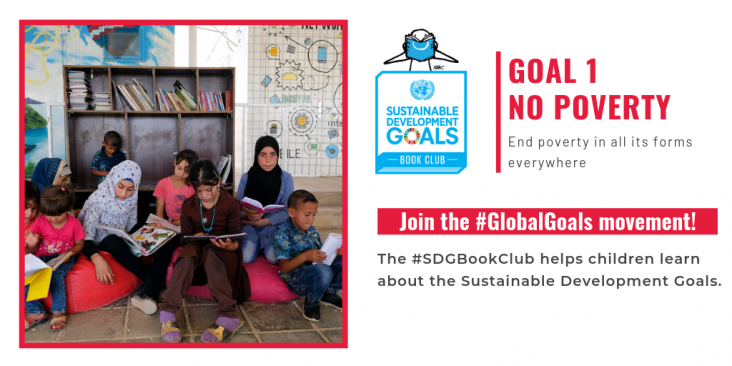The number of countries with a national development plan has more than doubled, from about 62 in 2006 to 134 in 2018.
The Sendai Framework for Disaster Risk Reduction encourages investment in innovation and technology development in disaster risk management.
The Government of Ghana has instituted a National Poverty Reduction Program with an initiative known as the Community-based Health Planning and Services (CHPS) as its core health development strategy.

The #SDGBookClub helps children learn about the Sustainable Development Goals. The book club presents a selection of books for children aged 5-12 on each of the goals. Check out the books that have been selected in support of Goal 1 - No Poverty.
Entrepreneurship is widely argued to be critical for alleviating extreme poverty.
Contributing to SDGs 1 and 8, this report discusses how the adoption of pro-growth policies tends to result in lower levels of poverty, especially through opportunities for job creation. In particular, it calls for policies that promote greater access to credit and the protection of minority investors in order to reduce such levels of poverty.
This book chapter addresses goals 1, 8 and 15 by focusing on rainfall index, which links insurance payouts to historical rainfall data from reliable weather gauging stations, and how it relates to crop and livestock losses. The system works in such a way that if the data shows that the rainfall amount is below the threshold, the insurance pays out. If implemented effectively, it has the potential to revolutionise access to formal insurance by smallholders.

Challenges posed by the intermittency of solar energy source necessitate the integration of solar energy conversion with scalable energy storage systems.
